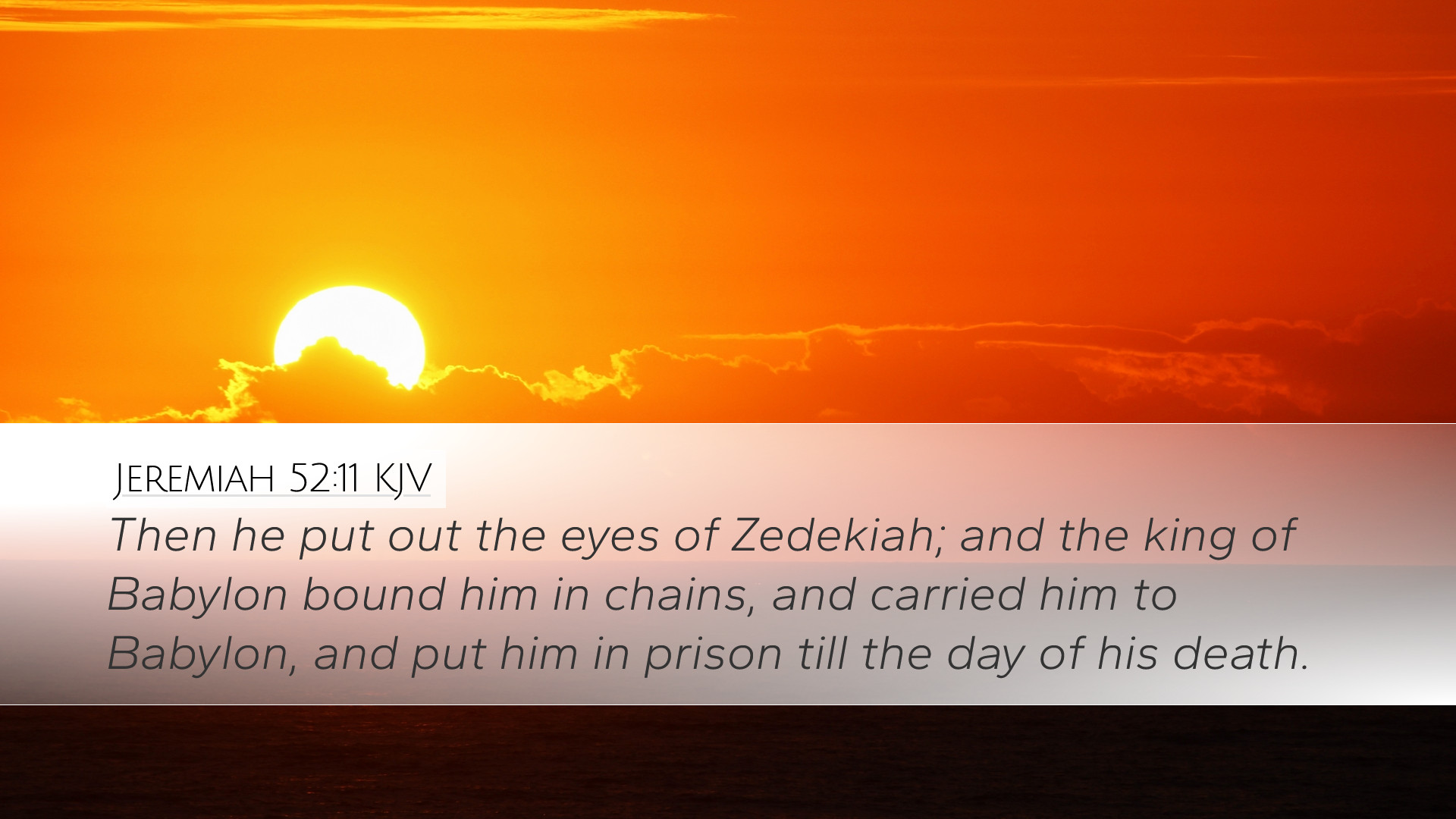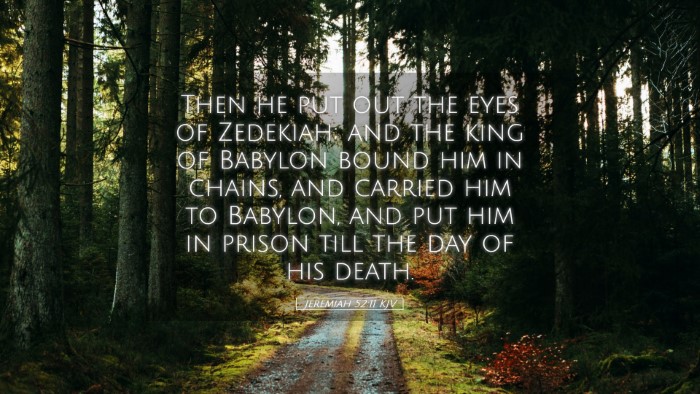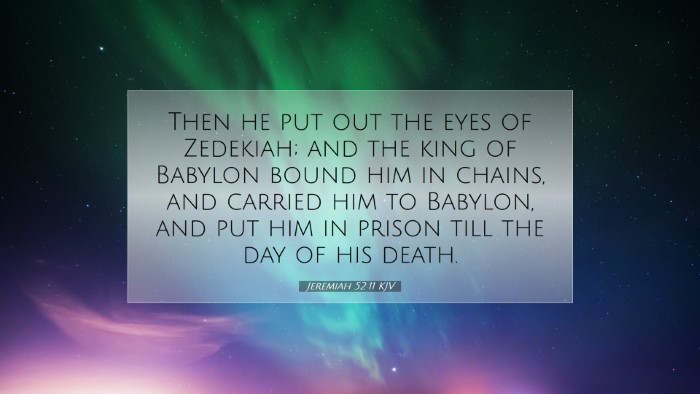Commentary on Jeremiah 52:11
Jeremiah 52:11 reads: “Then he put out the eyes of Zedekiah; and the king of Babylon bound him in chains, and carried him to Babylon, and put him in prison till the day of his death.” This verse encapsulates the tragic conclusion of the reign of Zedekiah, the last king of Judah and serves as a critical reflection on the consequences of rebellion against God.
Contextual Overview
To fully appreciate this verse, we must consider the historical context in which it was written. Jeremiah prophesied during a turbulent period for Judah, culminating in the Babylonian exile. Zedekiah, who ascended the throne at a young age, was, unfortunately, influenced by both political pressures and spiritual disobedience.
Exegesis of Jeremiah 52:11
- The Fate of Zedekiah:
Matthew Henry notes that Zedekiah's loss of sight symbolizes the spiritual blindness that often accompanies disobedience to God. His pride and failure to heed the prophetic warnings led to his tragic end.
- The Metaphor of Chains:
Albert Barnes emphasizes that the bondage Zedekiah experienced not only refers to his physical captivity but represents a deeper, spiritual bondage caused by sin. This duality highlights the comprehensive judgment of God upon unrepentant hearts.
- Divine Judgment:
Adam Clarke points out that God’s judgment is evident in this moment. The fall of Zedekiah serves as a warning to all leaders and nations of the grave consequences of turning away from divine guidance.
Theological Reflections
This verse provides rich theological insights regarding divine justice and human disobedience. The symbolism of Zedekiah's blindfold represents the people of Judah's refusal to see the calling for repentance.
- Spiritual Blindness:
Individuals often find themselves in a state of spiritual blindness when they refuse to listen to God. Just as Zedekiah's eyes were put out against his will, so too are hearts blinded by sin when they choose to reject God’s word.
- Leadership Accountability:
The fate of Zedekiah serves as a sobering reminder for contemporary leaders. God’s expectations for righteousness and integrity are timeless. When leaders forsake God's commandments, they not only bring judgment upon themselves but also upon their nations.
Practical Applications
From Jeremiah 52:11, several applications for modern believers can be drawn:
- Heed Divine Warnings:
Like Zedekiah, believers are often warned through scripture and the church. Attending to God’s messages and repenting promptly can prevent grave consequences.
- Seek Wisdom in Leadership:
Whether in church, home, or workplace, godly wisdom should guide our decisions. Leaders must remain humble and responsive to God's direction.
- Understanding Consequences:
Every decision carries weight; understanding the potential consequences of our actions encourages a more prudent and prayerful life.
Conclusion
Jeremiah 52:11 stands as a potent reminder of the repercussions of disobedience and the need for spiritual vigilance. As we reflect on Zedekiah's story, may we seek to align our lives with God's will, ensuring that we do not repeat the tragic fate of a king who lost everything due to his rebellion. This verse invites us to cultivate a heart of repentance, a spirit of humility, and a commitment toward faithful leadership.


